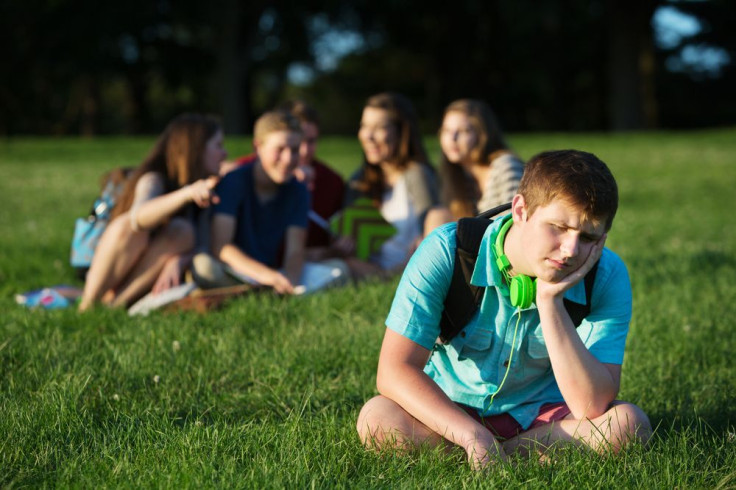Depression In Early Adulthood Links Back To Being Bullied As A Teen

Not everyone escapes their past scratch-free. Being bullied while a teen may cause depression later in life, say Oxford researchers.
Depression costs American society $210 billion per year, according to a recent article in Scientific American, but what is most surprising about this number is the fact that 60 percent of this is costs associated with related mental illness, such as anxiety, and related physical disorders, such as back pain or insomnia. Depression, then, has high economic as well as social costs.
One well-known fact about depression is the prevalence increases rapidly from childhood to early adulthood. In studies of animals, researchers have observed the long-lasting effects of negative social interactions during early adolescence; in fact, the effects of an unhappy past endure into adulthood. For these reason, researchers believe a contributing factor could be peer bullying.
Frequency
To examine this theory, a team of scientists led by Dr. Lucy Bowes of Oxford conducted a large-scale observational study involving 3,898 participants. The researchers analyzed bullying and depression data from the Avon Longitudinal Study of Parents and Children (ALSPAC). For this United Kingdom study, participants completed a self-report questionnaire about bullying at age 13 and then at 18, they completed an assessment to identify whether they met the criteria for depressive illness.
Of the 683 teenagers who reported frequent — more than once a week — bullying at age 13, just under 15 percent were depressed at age 18. Of the 1,446 teens who experienced some bullying — one to three times over six months — at age 13, slightly more than seven percent were depressed at age 18.
By comparison, only 5.5 percent of the teens who had not experienced bullying were depressed at age 18.
If this were a causal relationship, the researchers explain, up to 30 percent of depression in early adulthood could be attributable to peer bullying in the teen years. Importantly, the link between bullying and depression was apparent in both males and females.
In a past study, Bowes and her colleagues investigated whether being bullied by a sibling might be linked to depression, anxiety, and self-harm in later years. She found frequently bullied children were approximately twice as likely to have depression, to self-harm, and to experience anxiety as children who were not bullied. Additionally, this past study found "an association between sibling bullying and bullying at school — children who were bullied by a sibling were also more likely to report being bullied at school," Bowes told Medical Daily. And, as she explained, past research also suggests children bullied both at home and at school are most vulnerable to developing emotional and behavioral problems.
Naturally, health practitioners would hope to prevent these negative outcomes.
"Successful interventions tend to educate all children — those involved in bullying as bullies and victims, and also bystanders and other non-involved peers — about bullying, and involve increasing parental connections with the school, as well as dealing with specific cases of bullying," Bowes told Medical Daily.
Source: Bowes L, Joinson C, Wolke D, Lewis G. Peer victimisation during adolescence and its impact on depression in early adulthood: prospective cohort study in the United Kingdom. BMJ. 2015.
Note: An earlier version of this article did not include quotes from Dr. Bowes.



























